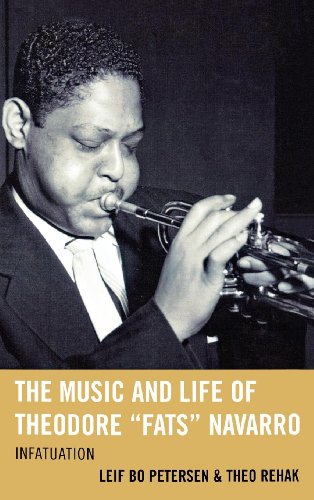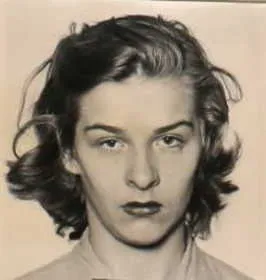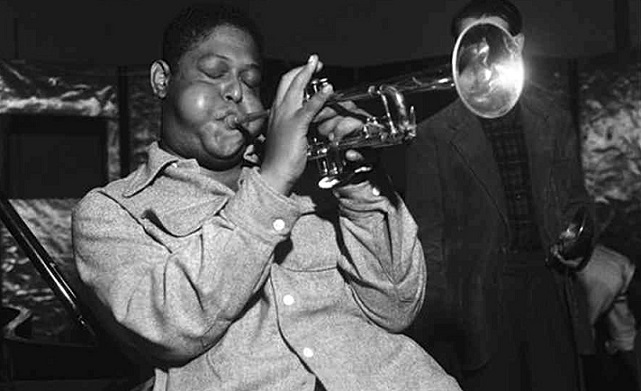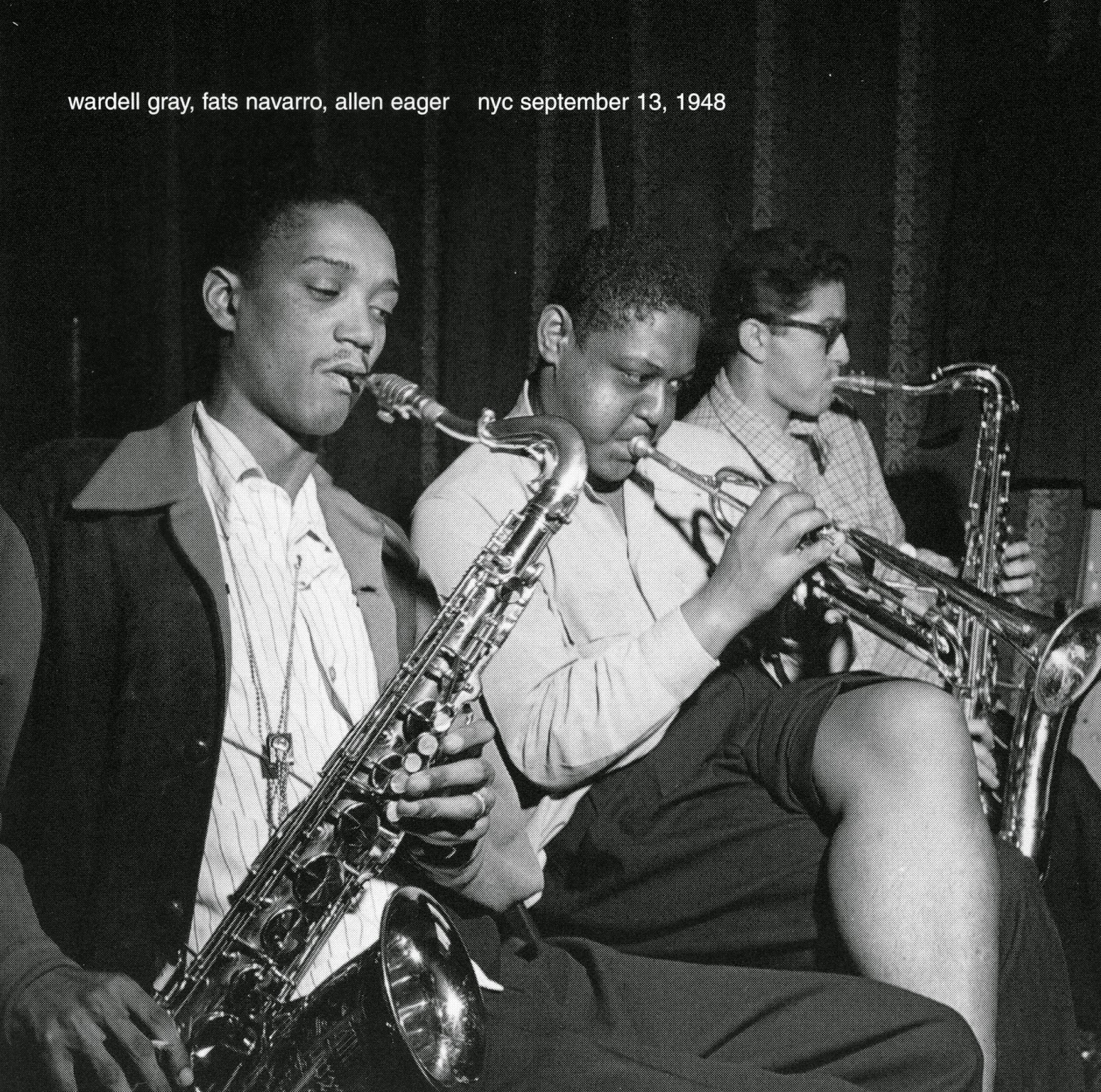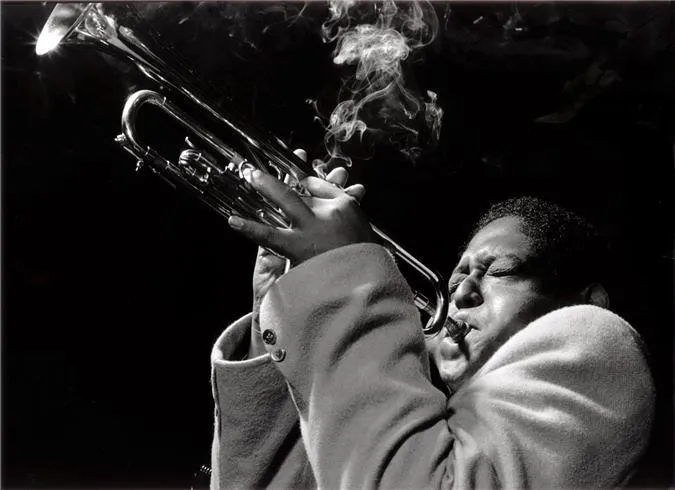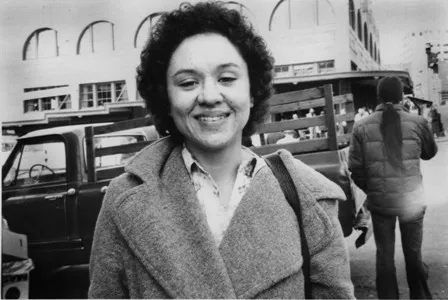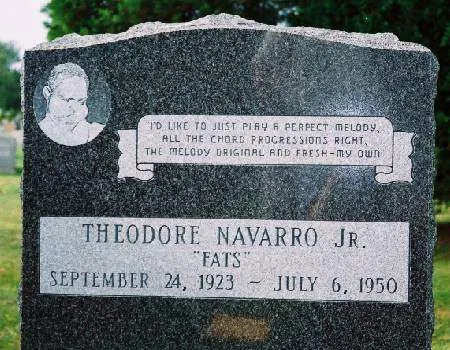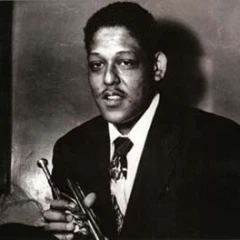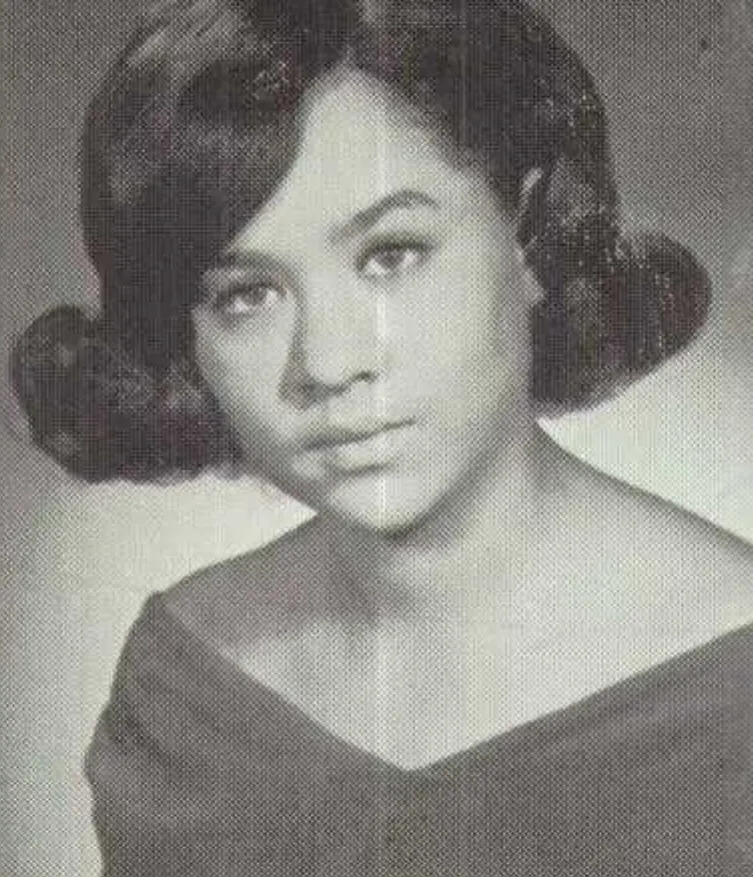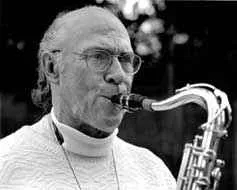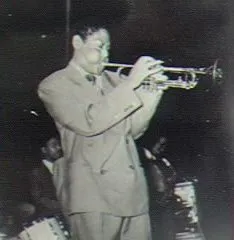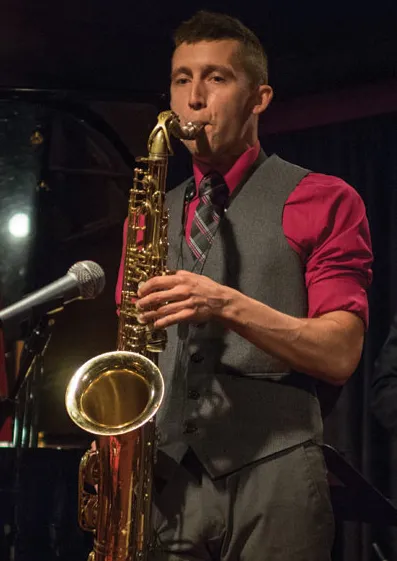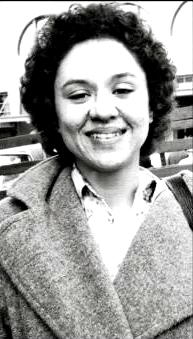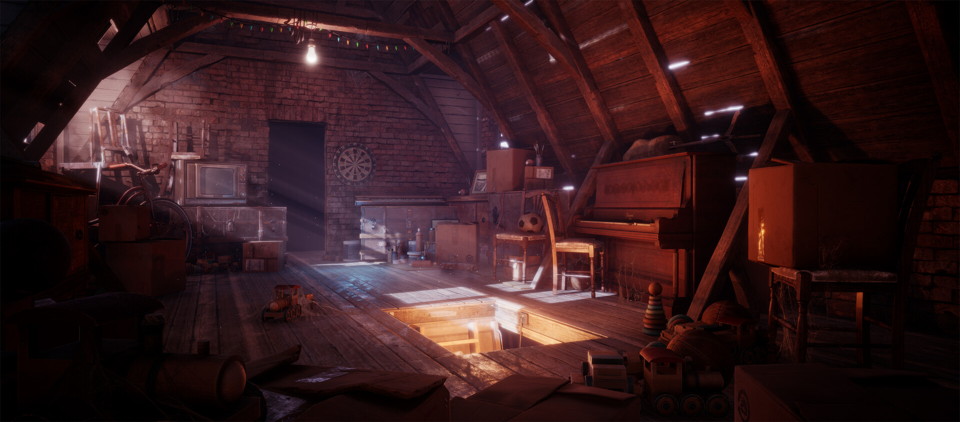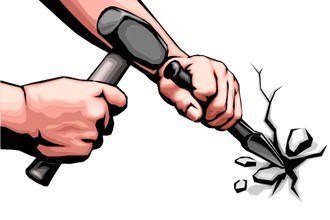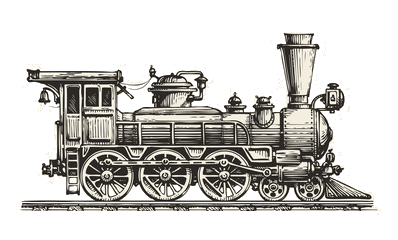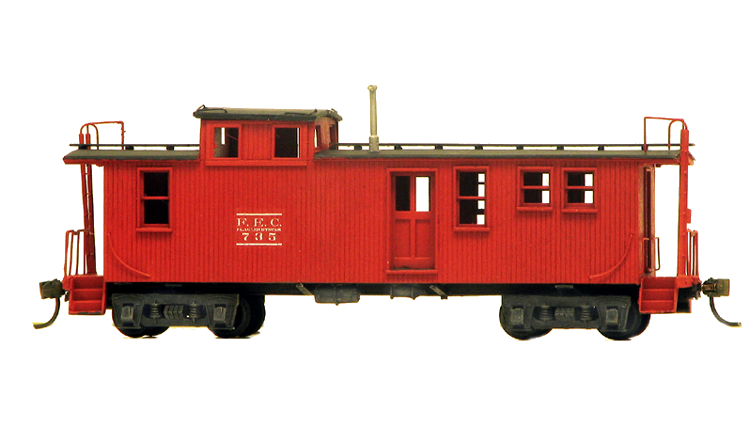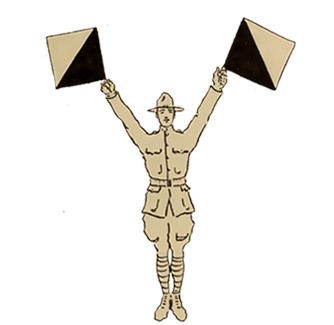
Leave a Comment
"I'd like to just play a perfect melody, all the chord progressions right, the melody original and fresh-my own."
Fats Navarro was a legendary figure to college kids of the late 50s and 60s, an early aficionado of the jazz innovations of the 1940s, the musical genre famously dismissed by Cab Calloway as Diz's "Chinese Music," adding, " We don't want any of it in this band!"
Navarro was 26 when died in 1950 of TB, heroin, and obesity. His recordings were hard to find by the time his 60s fans heard of him. His legacy has steeped over the intervening decades into a solemn brew, but his recordings flash like magic.
"Fats" was the nickname of Theodore Navarro (September 24, 1923-July 6, 1950), who began his professional career playing trumpet for Snookum Russell's territory band. He was a pioneer of the bebop revolution during the 1940s, playing in bands that included J. J. Johnson, Charlie Parker, Dizzy Gillespie and Charlie Shavers among many others. Vocalist Carmen McRae called him a "big, lovable character, playing the most beautiful horn..."
By the mid-forties he'd settled in New York and begun recording with the likes of "Lockjaw" Davis, Coleman Hawkins, Illinois Jacquet, Sonny Stitt and Bud Powell. And despite his "sweet" disposition, remarked by Dizzy Gillespie as well as McRae, he often feuded with pianist Bud Powell. He once swung his horn at the emotionally fragile piano innovator, but missed.
Leif Bo Petersen, and Theo Rehak wrote the definitive biography in 2009, fifty-nine years after Navarro's death. It's available in hard cover or eBook, but it's rare and expensive. Several people have written about Mr. Navarro, and his daughter, Linda. Their work is scattered across the Internet, and the Wikipedia entry is excellent.
Navarro developed a heroin addiction, contracted tuberculosis, and gained excessive weight, all of which destroyed his health. When he died young, he left a heroin addicted wife (Rena Clark Navarro, 1927-1975), and a daughter, Linda Kathlenn Navarro (1949-2014).
Navarro's art influenced the shape of music, as Jupiter helped shape the solar system. His musical legacy is so pervasive as to be often unnoticed, and like many artists, the price of his creativity left its own legacy.
His last performance was with Charlie Parker at Birdland, July 1, 1950. His grave went unmarked for decades.
To hear a sampling of Mr. Navarro's art, click the trumpet title banner above for,
- Barry's Bop (1947): Fats Navarro (tp) Charlie Rouse (ts) Tadd Dameron (p) Nelson Boyd (b) Art Blakey (d)
- Be Bop Romp(1947): Fats Navarro (tp) Charlie Rouse (ts) Tadd Dameron (p) Nelson Boyd (b) Art Blakey (d)
- Fat Girl (1947): Fats Navarro (tp) Leo Parker (as,bar) Tadd Dameron (p) Gene Ramey (b) Denzil Best (d)
- Ice Freezes Red (194): Fats Navarro (tp) Leo Parker (as,bar) Tadd Dameron (p) Gene Ramey (b) Denzil Best (d)
- Nostalgia (1947): Fats Navarro (tp) Charlie Rouse (ts) Tadd Dameron (p) Nelson Boyd (b) Art Blakey (d)
Linda Navarro, Theodore's daughter, was born with a heroin addiction. Both parents were addicts, and her symptoms began at birth. She battled her affliction all her life, and with great success. But there were also catastrophic consequences, including arrests for possession and prison time.
Her childhood involved foster care, and an unconventional home life, but she earned a law degree, raised a son, Amilcar, born in 1976, and went on to a successful life of community service. She put her son through college, and watched him become a successful photographer and videographer. Linda did heroic work as an attorney in public service. Nevertheless, her heroin addiction led to arrests, law license suspension, and incarceration, the penalties of an unlucky birth. Society was not kind to the innocent victim of illegal drug use.
An article in the Seattle Times in 1991 brought some instructive commentary from people who knew the Navarro story, although the article itself is not available to us. The comments come from saxophonist, Don Lanphere, and Joy Graybill, see below.
Linda devoted decades to raising funds to put a headstone on her father's grave. She finally succeeded in 2002, and an appropriate ceremony emphasized her victory.
Linda passed away August 12, 2014, her death hastened by the debilitations of her birth. She was uniformly loved and admired by those whose opinion counts.
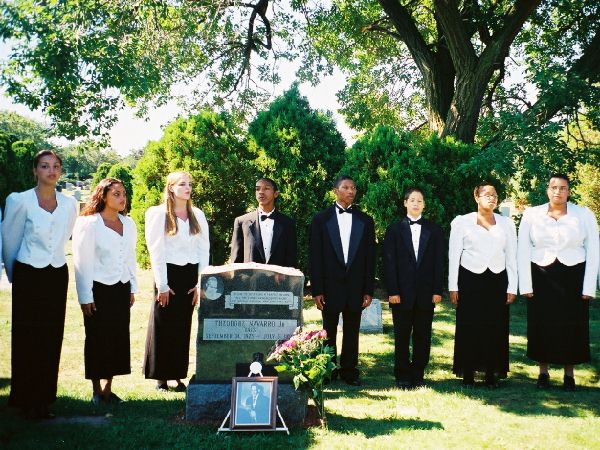
Carls Sandburg's Lyrics from the American Songbag
Those Gambler's Blues
(now known as St. James Infirmary)
Lyrics from "The American Songbag"
by Carl Sandburg (1927)
----------------------------------
Harwood Blog
It was down in old Joe's bar-room,
On a corner by the square,
The drinks were served as usual,
And a goodly crowd was there.
On my left stood Joe McKenny,
His eyes bloodshot and red,
He gazed at the crowd around him,
And these are the words he said:
"As I passed by the old infirmary,
I saw my sweetheart there,
All stretched on a table,
So pale, so cold, so fair.
Sixteen coal-black horses,
All hitched to a rubber-tired hack,
Carried seven girls to the graveyard,
And only six of 'em comin' back.
Oh, when I die, just bury me,
In a box-back coat and hat,
Put a twenty dollar gold piece
on my watch chain,
To let the Lord know I'm standin' pat.
Six crap shooters as pall bearers,
Let a chorus girl sing me a song,
With a jazz band on my hearse,
To raise hell as we go along."
And now you've heard my story,
I'll take another shot of booze,
If anybody happens to ask you,
Then I've got those gambler's blues.
Who in the world cares about Fats Navarro?
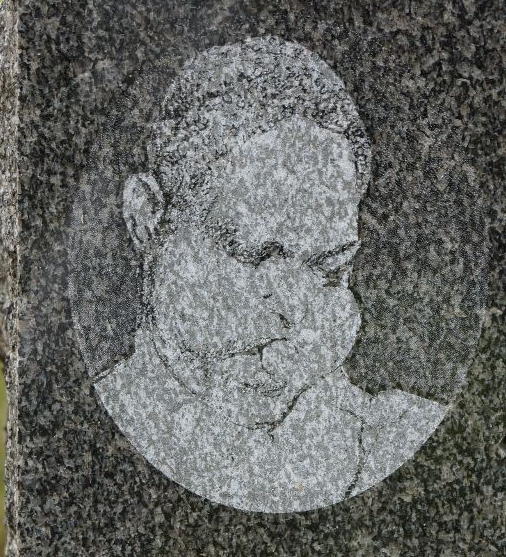
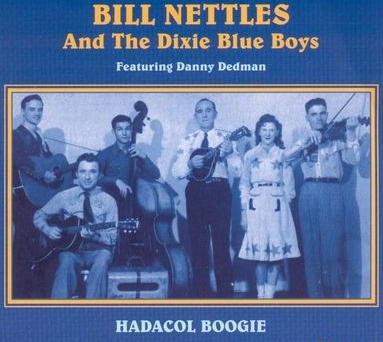
.webp)
